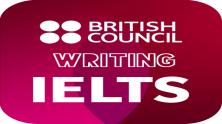
As we all know IELTS is a test required by Universities in the UK as part of meeting the entry requirements for international students. IELTS exam comprises four elements; Reading, Listening , Speaking and Writing . Students are given marks on each component as well as an overall score on a 9 Band scale. Thus, you will be given a score from 1-9 in each band. It is important that you score as much as possible for each element to secure your place at a university as there is a high competition in terms of getting admission to UK Universities. This article will help you to get yourself prepared to score a higher mark for the Speaking element of IELTS exam.
What is an IELTS Speaking test?
The speaking test is actually a face to face interactive session with the examiner and is more like a day to day conversation that you may have with someone. The speaking test is assessed by a certified examiner and it will last for about 11-14 minutes. The test consists of three parts.
Introduction and interview
This is the introduction section which will last for about 4-5 minutes. The examiner will first introduce her or him self with a brief introduction to the test and will confirm your identity. Then the examiner will initiate a general conversation by asking questions about yourself, family, your academic background, hobbies, weather etc. This section will allow you to familiarize yourself with the examiner and to get adapted to the environment.
Individual long run
In this section examiner will ask you to choose a task card which will indicate a topic for you to talk about. You will be given a minute to get ready with the topic and then you will be given about 1-2 minutes to talk about the given topic. This is more like delivering a speech. At the end of the speech, the examiner would ask you couple of questions on the same topic.
Two-way discussion
This section would last for about 4-5 minutes and it is a conversation between you and the examiner related to the topic in part 2. You will be given the opportunity to be engaged in an in-depth conversation by abstracting issues and ideas on the topic.
Throughout the test you will be assessed on your performance thus it is important not to be nervous. The examiners do not expect you to talk like a native English speaker but fluency, coherence, pronunciation, grammatical range and accuracy, vocabulary and familiarity will be assessed.
Tips to use at the exam
-
Relax and do not get nervous. Nervousness would lead to stammering and affect negatively on your pronunciation and clarity. So speaking with confidence is very important to get a higher score
-
Improve on your pronunciation as speaking is about pronouncing the English words properly and using right grammar. This will increase your level of fluency as well.
-
Use correct grammar
-
Use different words and try not to repeat the same word. It is important to impress the examiner with a strong vocabulary
-
When answering the questions there will be no right or wrong answers. You will be assessed on how well you communicate with people in English. Thus always express your ideas by being logical and consistent.
-
Try and speak as much you can – You will only have 15 minutes to be tested. So always speak more than the examiner does because it is you who is being tested.
How to get ready for the test
-
The most effective way of getting prepared for the test is to keep practicing the past IELTS speaking tests as most questions tend to be fairly predictable and similar to previous tests.
-
Listen to different Television channels which are telecasted in English as you would get the hang of using acceptable English, smart vocabulary and use of phrasal verbs.
-
You can also practice the tests with someone who is very fluent in English and someone who can point out the mistakes to you.
-
Build your vocabulary. This is the most effective way of getting ready for the speaking test as you will learn the pronunciation of different words as well.
-
Listen to native English speakers and understand how they articulate different sounds and how they stress on the syllables within words. This will help you to understand English language specific characteristics and how those are being functioned.
If you get yourself prepared for the test using above tips you will be familiar with the language and different words which would make you comfortable and confident in communicating in English fluently with the examiners.
Consider this as a very casual conversation that you may have in day to day operations. So do not get panicked and do well at the speaking test which is one of the easiest components in IELTS exam to score more marks.








